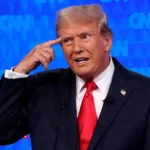The African National Congress (ANC) is facing a political earthquake in South Africa, as the once-dominant party scrambles to salvage its reputation and grip on power in the wake of a shocking election upset in the crucial KwaZulu-Natal (KZN) province. By Thursday afternoon, the ANC leadership was forced to privately reach out to rival political parties for emergency coalition talks, a desperate attempt to cling to control of the provincial government as their support crumbled.
As the day progressed, the party reached out to other political entities, initiating talks on cooperation and coalition-building. The initial reach-outs were made at the provincial level, with indications of a possible alliance forming between the ANC, the Democratic Alliance (DA), and the Inkatha Freedom Party (IFP), according to sources closely connected to the discussions.
"The ANC recognizes the importance of stable governance and is open to exploring possibilities for cooperation with other parties. We are committed to putting the interests of the people first," said a high-ranking ANC official, who spoke on the condition of anonymity.
The motivation for these talks is not only about power-sharing but also emphasizes the importance of stable governance in both KwaZulu-Natal and the national government. However, the fate of these discussions ultimately rests in the hands of the ANC National Executive Committee, which is yet to convene.
The ANC's outlook in KwaZulu-Natal took a sharp downturn, with the emergence of the uMkhonto Wesizwe (MK) party, led by former president Jacob Zuma, gaining significant traction. By 7:30 pm, the ANC's support had plummeted to a mere 21.27%, while MK enjoyed 43.4% of the votes counted. The IFP stood at 17.9%, and the DA at 10.3%. The ANC's diminishing support in KZN not only threatens its control of the province but also places its national majority at risk for the first time since the historic 1994 elections that ushered Nelson Mandela into power.
"KwaZulu-Natal has spoken loud and clear. The people are ready for change, and MK offers a fresh alternative to the ANC," declared Jacob Zuma during a public address in Nkandla.
To govern KwaZulu-Natal, the ANC would now require a three-way agreement with the inclusion of a smaller party. However, MK has already made it clear that it will not enter into a coalition with the ANC. As the negotiations unfold, all eyes are on what the former president's party could offer the IFP, potentially reshuffling the political dynamics even further.
While KwaZulu-Natal's political landscape hangs in the balance, the ANC's national standing also faces significant challenges. Pollsters throughout Thursday consistently placed the ANC's support at around 42%, a stark decline from the 57% it secured in the 2019 elections. Meanwhile, the DA hovered around 22%, the Economic Freedom Fighters (EFF) at 9%, and MK at approximately 10%. If these predictions hold true, MK's remarkable debut in national politics could surpass the EFF's 2014 performance of 6.35%.
With only 30% of the votes counted across South Africa's 23,293 voting stations by 7:30 pm, there is still room for drastic changes in the election results. Historically, the ANC has seen late surges in support from township voting stations, which could potentially influence the final outcome.
The ANC's struggle in KwaZulu-Natal is not entirely surprising. Even before MK's emergence, the party faced challenges in the province, with its support dropping from 65.3% in 2014 to 55.47% in 2019. As the second most populous province after Gauteng, KwaZulu-Natal holds significant weight in determining the complex seat calculations for the National Assembly, which now includes the regional ballot for the first time.
While the Independent Electoral Commission (IEC) maintains that the elections were conducted smoothly, concerns regarding the management of the process persist. Opposition parties, in particular, have raised issues surrounding the handling of the three ballots and the inconsistencies in reporting results. The IEC's assertion that voter turnout exceeded the 66% recorded in 2019 has also been retracted, with the final numbers yet to be confirmed.
"The IEC needs to address the concerns raised by opposition parties. We cannot have a fair and transparent election ifwe overlook these issues," stated one opposition party representative, who preferred not to be named.
As the night progresses and the final results draw near, South Africa holds its breath, awaiting the outcome that could reshape the political landscape and determine the ANC's future. The talks for a potential coalition government, the rise of MK, and the ANC's declining support have set the stage for a political shake-up that may mark the end of an era of dominance for the ruling party.











